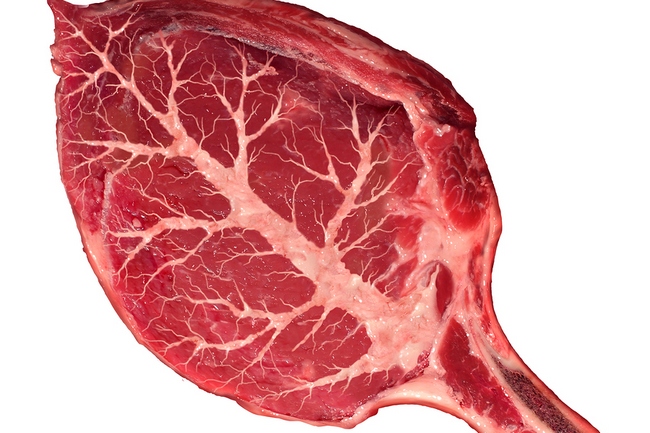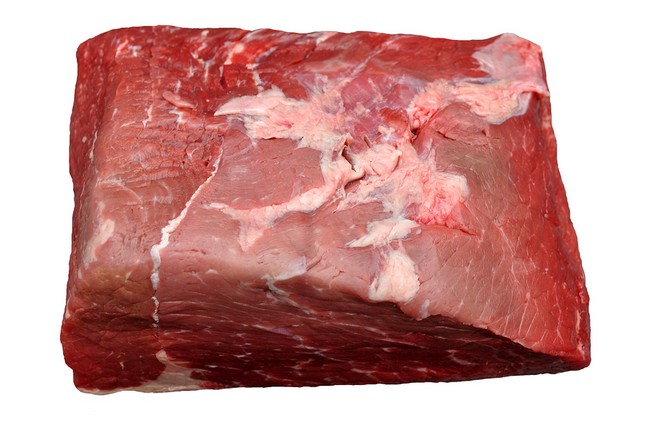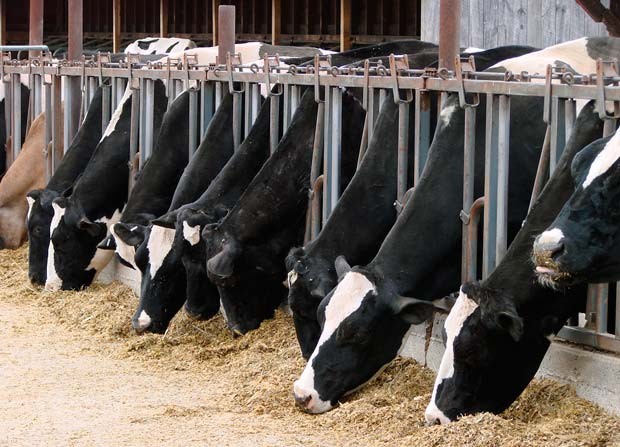- Make It Yourself Lavender Heart-Shaped Bath Bombs!
- 20 Things You Never Knew About “Down There”
- 12 Best Foods For Those Suffering From Arthritis Pain
- 12 Personal Hygiene Mistakes Almost Everyone Makes (Mom Never Told You About #4!)
- 15 Medicinal Plants And Herbs From The Cherokee People
- 12 Mind-Blowing Benefits Of Drinking Coconut Water During Pregnancy
- 12 Outstanding Winter Foods That Won’t Fatten You Up Like A Christmas Turkey
Switch to Grass Fed Meat: 5 Reasons Why You Should

Photo credit: bigstock
For some people, the choice to eat meat is a personal one. To each their own, as they say. For those of us who choose to eat meat and feel that it’s more natural, grass fed meats are the way to go. It’s much kinder and more natural for the animals; it’s easier on Mother Earth, those who deal with the animals, not to mention it’s better for your body.
For untold centuries, sheep, cows, chickens, even pigs, have been raised outside on pasture land, enjoying fresh air, sunlight, rain, and eat a natural diet of grass, leaves, and insects. Animals grew up healthy, naturally, and gave us healthy meats that were nutrient rich in proteins and healthy fats. Read more about healthiest foods you should have at your kitchen.
Quite a far cry from the factory meat farms of today. Pigs raised in crates so small they can’t stand or turn around. Chickens shoved into tiny cages set in warehouse like settings where they never see or feel sunlight, cows crowded together being fed harmful by products and growth hormones. The meats from animals that are raised in these types of conditions lack almost many of the nutrients you find in grass fed meats.
Pastured or grass fed meat comes from animals that live outdoors, enjoying the sun and the rain, eating what comes natural to them. Animals that eat a natural diet rarely require antibiotics. Chickens are protected from natural predators by living inside fenced in enclosures and retreating to barns at night, to roost the way they naturally do.
Grass fed animals have healthy fat profiles, not to mention the following health benefits:
- Higher amounts of conjugated linoleic acid
- Higher in beta-carotene
- Higher amounts of minerals, potassium, magnesium, and calcium
- Higher in omega-3 fatty acids
- Balanced ratio of omega-6 to omega-3
- Higher levels of vitamin E
- Higher in B vitamins
- Higher levels of vaccenic acid
Vaccenic acid is a trans-fat that naturally occurs in animals such as cows and sheep. Vaccenic acid protects against atherosclerosis, a common risk factor for the development of heart disease. Don’t confused vaccenic acid for the same type of synthetically made, dangerous trans- fats that are found in processed vegetable oils.
Studies show that grass fed cows contain as much as 7 times the amount of beta-carotene compared to factory raised cows. This is according to California State University studies. Beta-carotene is a type of pre-cursor for vitamin A, a fat soluble vitamin that is necessary for good vision, immune function, and bone growth.
Chickens that are considered to be “free range”, walking around outside in the sunlight, have higher levels of omega-3’s and vitamin A.
Continue to Page 2

Photo credit: bigstock
If that isn’t enough to convince you, take a look at our top 5 reasons you should switch over to meat from grass fed animals.
1. Grass fed meat is safer
The Environmental Working Group recently released a report that discovered that, because of the misuse of antibiotics on factory farmed animals, much of the meat for sale in supermarkets and restaurants contain antibiotic resistant bacteria (More commonly known as superbugs) This could be a real threat where antibiotics and other important medicines that are vital for treating seriously ill people could become ineffective. Superbugs cause serious infections that are more and more difficult to treat and can cause serious medical complications.
2. Grass fed animals are greener
Well, not necessarily in color, but to earn the name “grass fed”, animals must eat nothing but grass or grass types of hay from birth until they are brought to market. (Milk from their mothers are allowed, of course) Grass-fed animals mean exactly what the name implies, they eat grasses and leaves; exactly what Mother Nature intended them to eat, not GM grains that make animals so sick that they must be loaded up with antibiotics. Choosing grass fed meat means you are eating natural meat that is free of antibiotics.
3. Grass fed animals are natural
Perhaps the only downside to grass fed meats is the higher cost. Grass fed animals are not pumped full of growth hormones so they mature more naturally, which means more slowly. Since the production time is longer, this natural growth increases the cost of the meat. From an ethical, environmental, and nutritional point of view, however, grass fed animals are worth the wait and worth the cost.
Continue to Page 3

Photo credit: bigstock
4. Grass fed is not gross or disgusting
Most of the meat you see in your supermarket comes from mass produced, factory farmed feedlots. This is because this is the cheapest and fastest way to grow meat. Mass producing meat, however, means confined, stressed out animals that frequently become sick so they must be given tons of antibiotics, are fattened up through hormone injections that are connected to cancer growth in humans. On top of that, the “food”, if you can call it that, that these animals are given would sicken anyone; animal byproducts, bubble gum, restaurant waste, chicken litter, municipal garbage, and GMO grains. You are putting into your body everything that the animal you are eating put into their body. So would you rather put grasses into your body, or the animal feed mentioned above?
5. Grass fed is simply more nutritious
As mentioned in the paragraphs above, grass fed meats have a larger amount of nutrients than their factory farmed cousins. Grass fed animals have more of all the important nutrients mentioned above which are all important for keeping your cholesterol in check, lowers your risk of high blood pressure, diabetes, and obesity. The meat from grass fed animals is lower in fat, cholesterol, and calories. And to top it all off, grass fed meats are virtually free from E.coli outbreaks, which is a huge plus in the grass fed animal department.
The best way to ensure that the meat you buy comes from a truly grass fed animal is to talk with the farmer or rancher who raised the animal. For some of us this isn’t possible, true, so instead you might try looking to the American Grass Fed Association. This organization is working to establish a legal definition of exactly what “grass fed” means and making sure that those who use “grass fed” labels meet strict requirements.
Remember, if it doesn’t say “grass fed” on the label, it is factory farmed meat.
Sources:
(By the way, if you’re enjoying this article, you may want to subscribe to the Naturalon’s free newsletter; get breaking news alerts on GMO’s, fluoride, superfoods, natural cures and more… You privacy is protected. Unsubscribe at any time.)

































